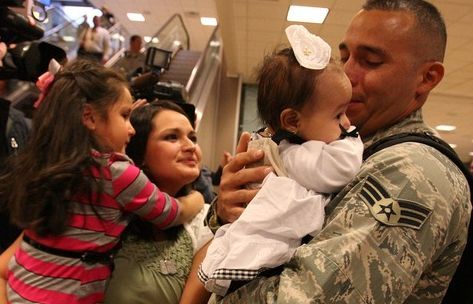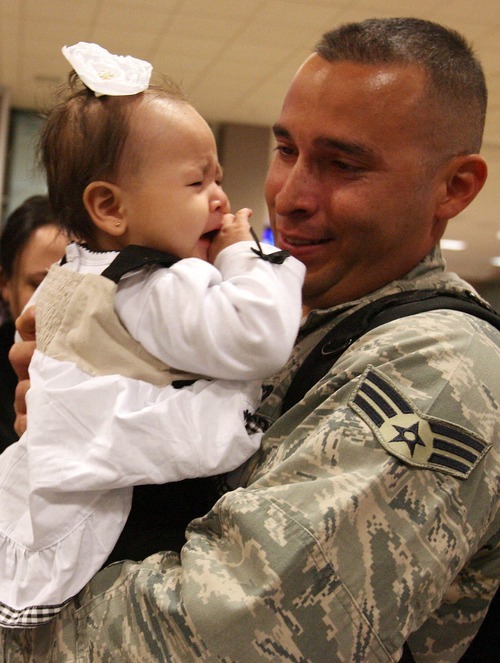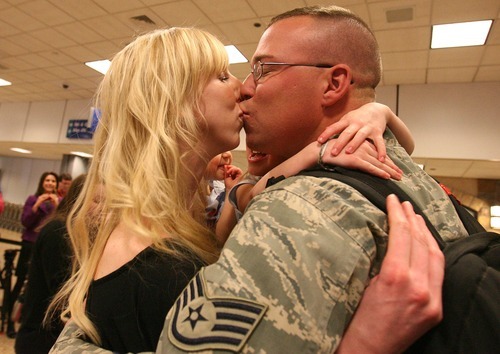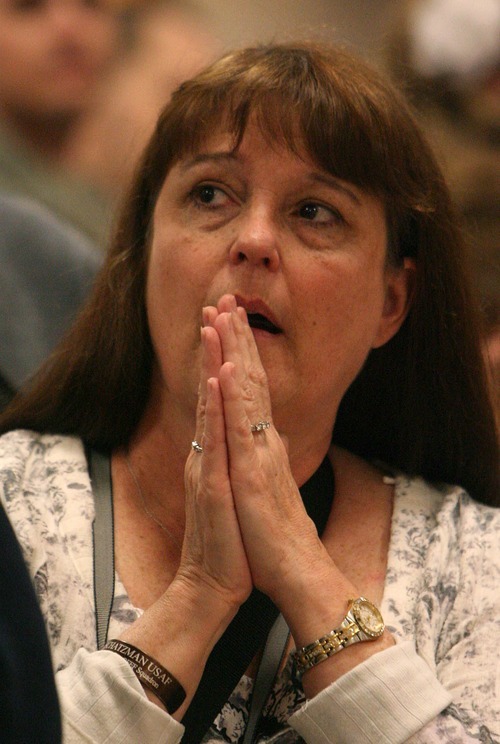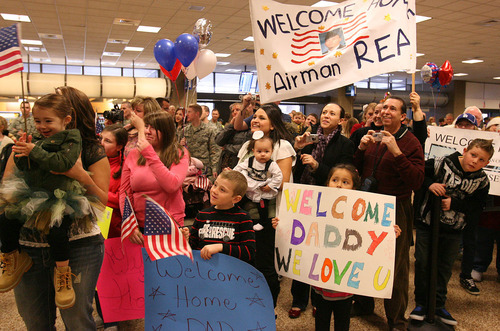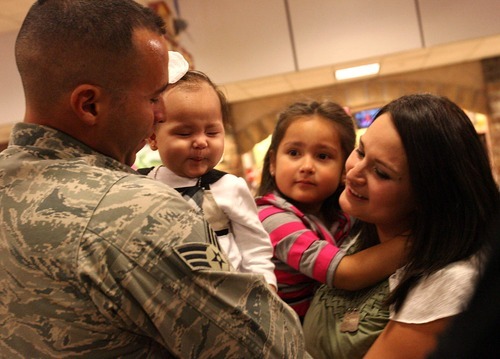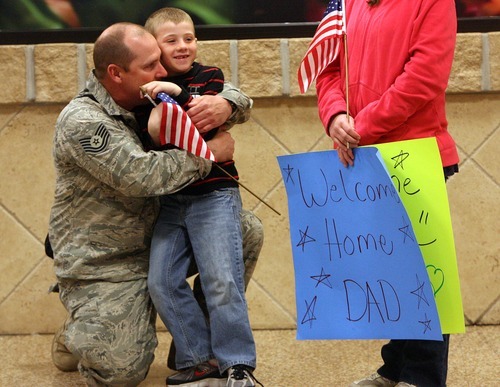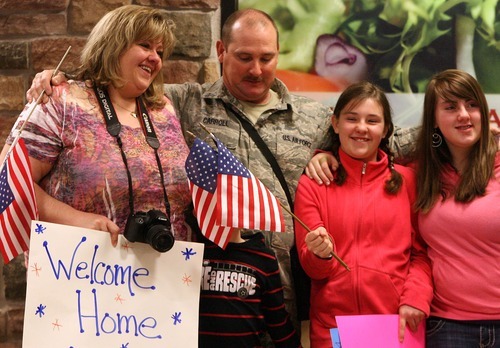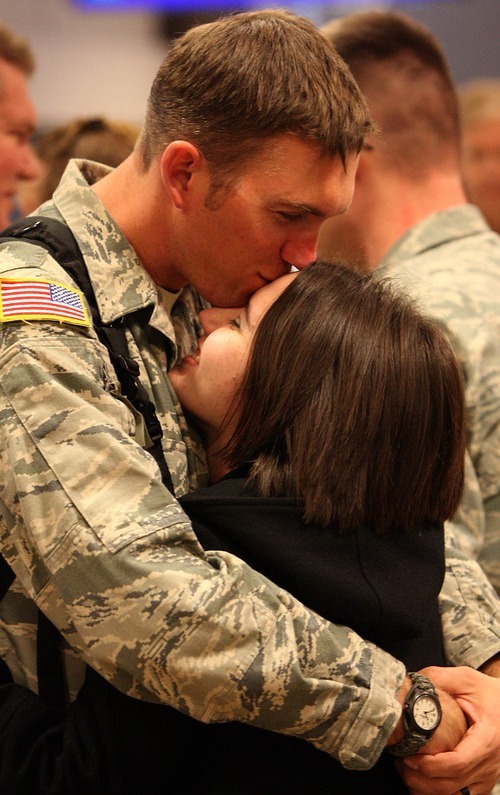This is an archived article that was published on sltrib.com in 2011, and information in the article may be outdated. It is provided only for personal research purposes and may not be reprinted.
Cecilia Rea held her baby in her arms and bounced gently up and down on the balls of her feet. The tiny girl cooed softly. Next to Rea's hip, her 7-year-old daughter, Heather, rolled and unrolled a sign she had made for her father, Senior Airman Geiber Rea, who was just minutes from returning to his family after a six-month deployment to Afghanistan.
"I knew when he joined the military that it was going to be hard, and it was," Rea said as she repeatedly kissed 5-month-old Amelie on the softest parts of her head. "But this has been good for us. I've learned to appreciate him more. And I'm prouder of him than ever."
Still, she was ready for it to be over. She was ready to introduce her husband to his baby daughter. Ready to "just relax together."
There was a time, not so long ago, when military families were something of an afterthought. Married service members were the exception. Children — "brats," as they're called — generally belonged to older service members.
The scales tipped just before the nation's most recent wars began. Currently, more than half of service members are married and a little less than half have children, according to the U.S. Department of Defense.
Among all service branches, Air Force reservists are most likely to be married — about two-thirds are hitched, according to the military, and about half have children.
Those statistics were well reflected on Wednesday at Salt Lake City International Airport, where Rea and her daughters waded into a sea of hundreds of people who had come to welcome home the Air Force Reserve's 419th Civil Engineering Squadron.
Lt. Col. David Konshok, the squadron's commander, said he was proud of how his team performed as they traveled from base to base in northern Afghanistan, building and maintaining living quarters for the tens of thousands of U.S. soldiers that have arrived during the past year in response to a White House-ordered "surge." But looking out over the crush of hugs and kisses and tears and laughter as his airmen were reunited with their families, Konshok said his proudest moment "is this, right here."
"This is the best day," he said. "This is what it's all about."
Col. Keith Knudson, commander of the 419th Fighter Wing, of which the 419th Civil Engineering Squadron is a part, said the military has come to realize that its business is a family affair. "We've got to treat families right," he said. "If we don't, we'll lose people — good people."
That means support groups, education, spousal employment programs, heath care, recreation and — increasingly in times when one parent is often away in a dangerous place — counseling services.
In January, President Barack Obama, first lady Michelle Obama and physician Jill Biden put forward nearly 50 commitments by federal agencies responding to the president's directive to develop a comprehensive approach to supporting military families. The goal, according to the White House, is to ensure that service members can maintain both strong families and a high state of readiness — and that families can live fulfilling lives while supporting their service members.
Strong families aren't just important for sustaining individual military members, Knudson said. They also represent a sustaining resource for the all-volunteer military.
One of the best sources of new recruits, he said, is the families of current personnel.
Tech. Sgt. Steven Azevedo and Senior Airman Chris Azevedo know that to be true. Chris followed his younger brother into the Air Force Reserve. After three deployments on his own, Steven said, it was good to have his brother and best friend by his side.
But, at times, Steven said it was also stressful. He understands the dangers of war. And when he would hear of an incident or an attack in an area where his brother was, he would worry until he got word that Chris was safe.
"When we were apart, I wouldn't be there to look after him," Steven said.


